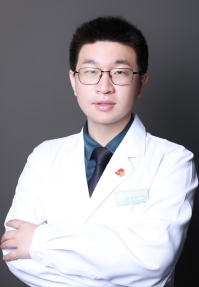Why does a 13-year-old child experience knee pain when running?
Generally, the causes of knee pain in 13-year-old children during running may include growth periods, intense physical activity, meniscus injury, synovitis, and patellar chondromalacia. If discomfort occurs, it is recommended to seek medical attention promptly for proper treatment. Detailed explanations are as follows:
1. Growth Period
During adolescence, a child's body undergoes rapid development, with continuous changes in bones and muscles. This rapid growth can lead to imbalances between bones and muscles, resulting in symptoms such as knee soreness, cramps, and muscle pain. It is advisable to consume more protein-rich foods such as chicken, eggs, and milk, which support healthy physical development.
2. Intense Physical Activity
If a child overuses the knee joint—such as through frequent or prolonged running or high-intensity training—it may lead to knee pain, fatigue, dizziness, and other symptoms. Cold therapy can be applied to the affected area using ice packs or cold damp towels, applied for approximately 15–20 minutes each time, repeated 3–4 times daily, which helps reduce inflammation and swelling.
3. Meniscus Injury
The meniscus is cartilage located on the inner and outer sides of the knee joint. Sudden twisting or rotational movements during running may injure the meniscus, causing symptoms such as knee pain, a sense of joint instability, and clicking sounds. Treatment may include medications such as Amoxicillin Capsules, Diclofenac Sodium Enteric-coated Tablets, or Ibuprofen Sustained-release Capsules, taken under medical guidance.
4. Synovitis
During running, if the knee joint suffers trauma or excessive twisting, the synovial membrane within the joint may become damaged. This can trigger an inflammatory response known as synovitis, leading to symptoms including knee pain, a burning sensation, and limited joint movement. Under a doctor’s supervision, medications such as Ibuprofen Sustained-release Capsules, Ampicillin Capsules, or Amoxicillin Capsules may be used for treatment.
5. Patellar Chondromalacia
Due to rapid skeletal and muscular development during adolescence, imbalances may arise that contribute to patellar chondromalacia. During running, increased pressure and friction on the patella (kneecap) can cause knee pain, joint noises, and difficulty standing straight. Medications such as Zhuanggu Guanjie Pills, Glucosamine Sulfate Capsules, or Vitamin AD Softgels may be taken as directed by a physician.
In daily life, maintaining moderate exercise is crucial for knee health. Low-impact activities such as swimming, cycling, and yoga can strengthen the muscles and ligaments surrounding the knee joint, thereby improving joint stability.




